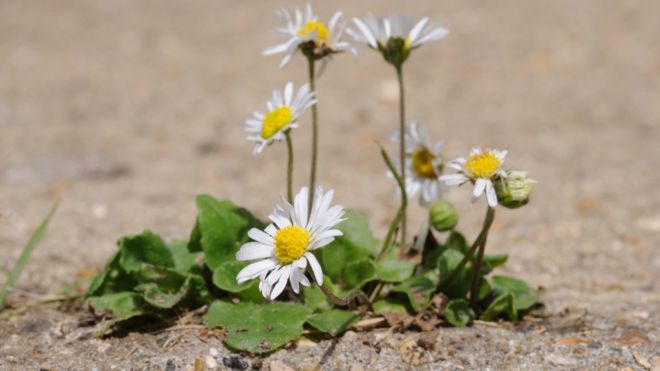
Losing touch with nature has harmed us emotionally and spiritually. We have an automatic positive response to green spaces and growing things. It is part of our makeup.
Your days are spent under artificial lights in an office, while the last of autumn's blooms are hidden beneath piles of decaying leaves.
NDD, or nature deficit disorder, has become a buzzword of late. Although it's not a recognized medical condition, concerns about its effects on wellbeing are attracting widespread attention.
"I guess it's a symptom of current lifestyle," says Dr Ross Cameron of the department of landscape at Sheffield University.
"We're so clued into modern technology and things that we're less observant about the world around us and we're more likely to learn about wildlife ironically from a National Geographic program than from a walk in the woods."
Richard Louv coined the phrase Nature Deficit Disorder in his 2005 book Last Child in the Woods. He argues that all of us, especially children, are spending more time indoors, which makes us feel alienated from nature and perhaps more vulnerable to negative moods or reduced attention span.
Dr Cameron gave his views on the subject in a lecture at the Royal Horticultural Society this month.
"[The phrase NDD] has been used as a bit of a coverall to describe the thing of where we used to have natural processes, natural experiences in our life, and that seems to be becoming less common,"
There's "another throwaway term, which is 'nature knowledge deficit', which means we don't understand as much about the natural environment as we used to, he explains.
And if we don't experience natural places or "tinker around in the garden", this can be bad for our mental health."
Also, no connection with other living species (animals as well as plant life) makes us feel alienated instead of making us feel one with nature. Even a walk in the park can lighten your mood and give you positive feedback. Looking at flowers or birds can improve your feeling of well being. It is what we were designed to do... interact with nature.
"As biological beings we are physiologically adapted to be in certain environments - to run, to play, to hunt, to be active basically," says Dr Cameron.
"The reality is we tend to have the lifestyle of a brick these days. We tend to sit for most of the day - we tend to be very sedentary. Just a walk around the block could help break that pattern."
His job is to think about how green spaces can be integrated into the human landscape. So, could this be the solution?
"I'm not sure it's a cure," he laughs. "Landscape is obviously a very open-ended and undefined term."
"But basically any interaction with nature/green space has potential. I would argue that as you increase the scale and quality of the interaction, the benefits also increase."
But he says even small and simple connections with nature can "give people a buzz", be it a robin at the front door or sitting in the garden watching a butterfly.
"You don't necessarily need to go to the Rockies or go to see blue whales off the Azores or anything like that.
"It's trying to see how much of these everyday things people notice, recognize and get a positive emotional response from."
Growing a few green things in pots on your windowsill, if you live in the city, can help you connect with nature on a small scale. We need to re-introduce green spaces in cities, in industrial areas, around schools. We are part of nature and need to re-connect with it. It is a matter good all around physical and mental health.





No comments:
Post a Comment
Through these open doors you are always welcome